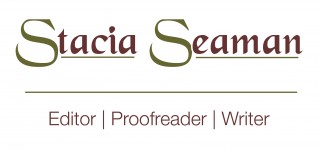Almost twenty years ago, I spent a week in a hospital in Czechoslovakia. I was in pain and groggy, not entirely sure what was going on. A friend came in every afternoon and read to me. Ulysses, by James Joyce. It was magical. The words soared, they dipped and they ran together and they sang. I’m sure the drugs had something to do with it, not to mention the euphoria of hearing English for more than five minutes at a time, but I’ll never forget the sheer joy I felt at Joyce’s use of language.
By definition, language is an important element in literature. But sometimes, sometimes, through careful use of language an author is able to add an extra dimension to the story being told.
This weekend, I finished reading The Road by Cormac McCarthy. It is the best book I’ve read in quite some time. The setting is the Southeastern United States, after some sort of apocalyptic event. The primary characters are a man and his son, who are walking along the road. Where they’re going, why they’re going, is never fully explained: it could just be the basic human need to keep moving, to not give up.
Part of the reason I liked it so much was the author’s use of language. The book itself is not that long, and there’s a lot of white space on the page. Easily readable in a day or two. But I didn’t want to do that. I rationed the pages, wanting to think. To reflect. To make sure I wasn’t missing anything.
Every word was chosen carefully and precisely. The prose is as stark and bare as the landscape it’s describing. The dialogue between father and son is laconic and unvarying–which is as it should be. The father is really the only company the boy has ever known, and speech is learned. Contractions sometimes appear without apostrophes, and words and phrases are used in a way that’s not quite right. But how better to mirror a society that is breaking down, where the old rules are mostly gone but new ones haven’t yet taken their place?
And yet, as much as I liked the book, I can’t say that I enjoyed it. It was dark, and it was difficult, and it scared me. But it also dealt with issues like faith, and hope in the face of overwhelming destruction. It’s not an easy read, but it’s worth it. The best book I’ve read in years.
